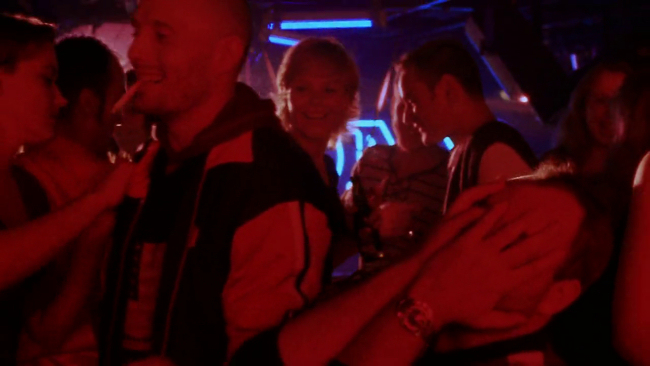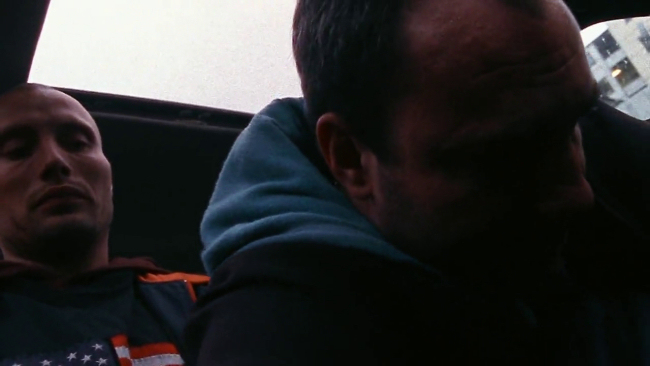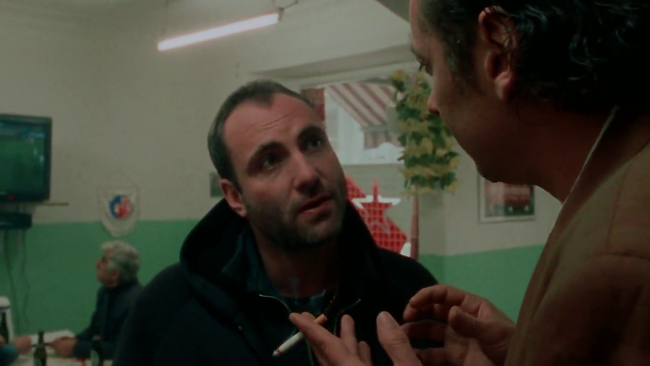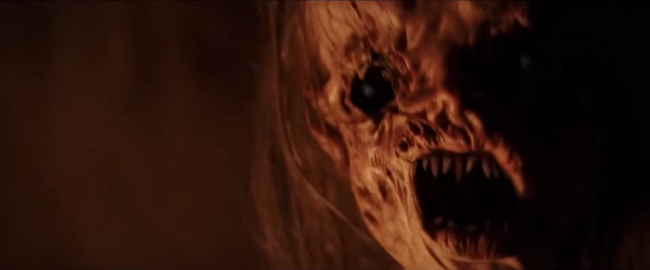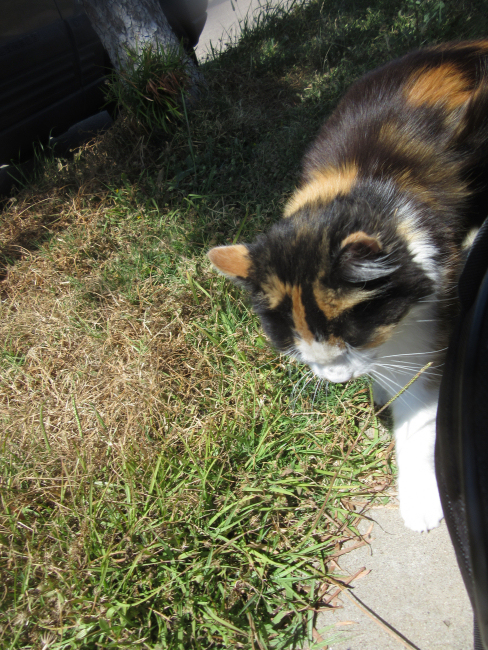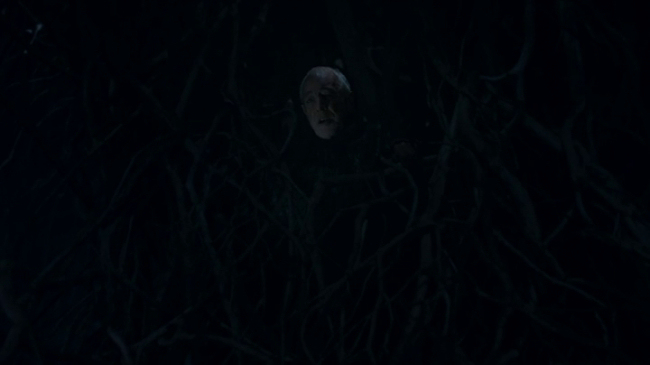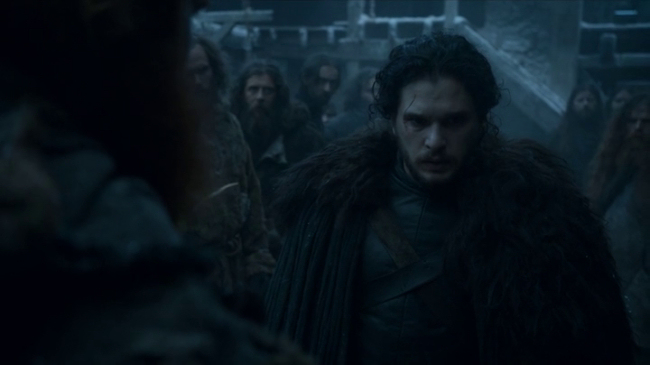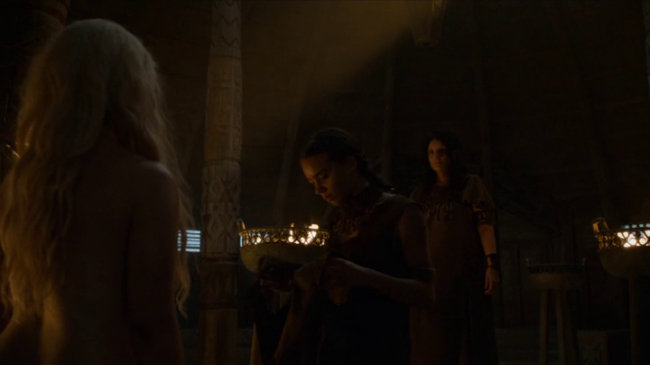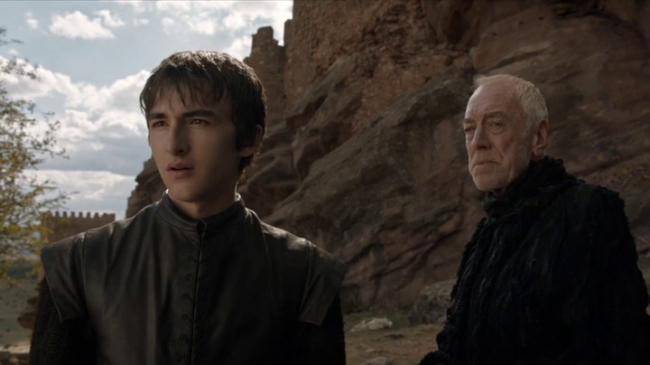Last night I dreamt I was at a big outdoor concert festival like Coachella and a guy asked me to watch an ant he was fighting while he used a port-o-potty. The big black ant ended up being about the size of a cat and it was just standing there wiggling its head in the air. I couldn't believe I was seeing such a large ant so I started taking pictures, feeling slightly frustrated there was nothing near the ant to show the scale. Then a little black Scottish Terrier attacked it and it ran. I chased after the two, following them into a network of caves but I had to stop because Donald Trump blocked my path. The dog and the ant raced past him. He was saying something to me about how horrible he thought Jews and black people are and he started talking about troubled youth and blamed the problem on their "parent nets".
"You mean parents?" I asked and he admitted he meant parents. I realised I was taking video with my camera and I was about to start asking Trump some questions that would show how foolish he was in a satisfying way when Trump said to someone behind me, "You need to lose weight."
I looked back and Kyle MacLachlan was reclining on a chaise lounge dressed as Agent Cooper. He shrugged and smiled. He didn't seem that heavy but I said, "Well, after all those years of doughnuts and cherry pies, it would make sense for him to be fatter."
Nothing in my dream was apparently inspired by last night's Game of Thrones but it was my favourite episode of the season so far. Though it still feels a bit like the show is in fast-forward.
Spoilers after the screenshot

Although I would have liked to have spent some time on the road with Brienne, Podrick, and Sansa getting to know each other, it was really nice seeing Sansa and Jon reunite. Now we see why Jon has been struck with the inexplicable reluctance to help anyone, it was to give Sansa something to take charge about. Well, good for her.

Meanwhile, Cersei takes control of the situation in King's Landing politics, Daenerys becomes the first woman to rule over all the tribes of the Dothraki, and Yara finds she might have a shot at being the first female ruler of the Iron Islands thanks to the timely arrival of a mutilated and cowed Theon. Let's not forget that the Sand Snakes took over Dorne so it looks like we're seeing a spontaneous feminist revolution in the world of Game of Thrones. That's a whole lot of coincidence in these supposedly patriarchal cultures but, hell, why not. It's fun, it's fantasy.
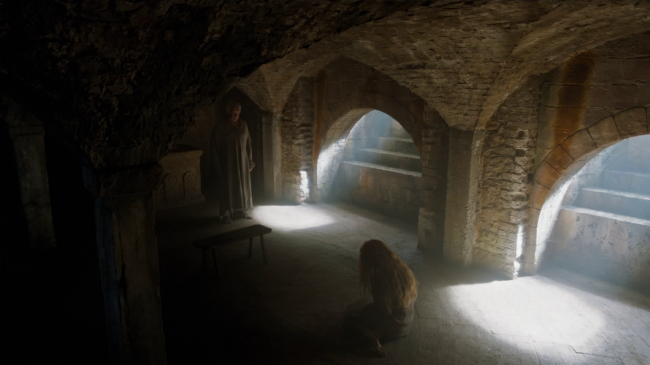
It's a shame poor Margaery is benched for it but she and the High Sparrow had my favourite version of the repeated scene where the High Sparrow comes off as really nice and humble despite being at the head of a group of mute, weird assholes. Jonathan Pryce sells that story about being a cobbler and we share the feeling Margaery seems to be having of slight entrancement. This season is actually making the High Sparrow seem credibly dangerous and I'd say it's almost entirely due to Pryce.
Although, here's a lighting tip--if a character is using her hand to shield her eyes from the light, you should probably make it so that her hand is shielding her eyes from the light.

Seeing Tyrion getting the ball rolling on some possibly brilliant, possibly disastrous political manoeuvring was great, vintage Tyrion.
It was nice to see that beautiful location again in the reintroduction of Littlefinger. Is it Ireland? Anyway, it's gorgeous.

With Davos bringing up Shireen to Melisandre, I wonder if by some implausible means the truth that Stannis sacrificed Shireen at Melisandre's urging is going to come out. Realistically, it shouldn't, but according to melodrama logic it will inevitably come out. I hope not, I don't think anything interesting can come out of it. It'll probably end up with an argument between Davos and Melisandre that comes to nothing. It's so hard not to type "Davros". Now that would be interesting.

Well, just when we thought we'd seen the last of Emilia Clarke's boobs, there they were, making the dramatic reappearance Game of Thrones is known for. I know, it's not exactly the same as a character from three seasons ago unexpectedly returning but, then, it kind of is. We got to know these boobs over the years and then they were gone. Just like Kit Harrington was doing all kinds of press about how Jon Snow was truly dead, Emilia Clarke was going around saying she wasn't doing nude scenes anymore. As Clarke put it:
"I'd like to remind people the last time I took my clothes off was season 3. That was awhile ago. It's now season 6. But this is all me, all proud, all strong. I'm just feeling genuinely happy I said 'Yes.' That ain't no body double!"
Which is great, I'm glad she feels empowered by it, regardless of what Bette Midler might tweet at Kim Kardashian. Only . . . Well, the shot is actually kind of awkwardly framed. Really, it should have been a full body shot and then maybe an extreme close-up of her face. A waist up shot says, "This is how much we're allowed to show." A full shot says, "This is what the people watching, ostensibly the POV, are seeing," while an extreme close-up would be, "This is what the people watching are focusing on," as well as giving us the emotional perspective of the character, an extreme close-up reflecting the power of her will.
I know, I know, there's no pleasing some people. Really, I thought it was a badass moment, a pleasing echo of Daenerys' badass moments from previous seasons.

There was really only one scene I genuinely didn't like and of course it was Ramsay's scene. I had no particular investment in Osha--I didn't love her or hate her. It's not that I minded that she was killed after only just recently showing up again after two or three years, but there are too many layers of implausibility in the scene;
1) Why is she there at all? Why did the bearded guy think Ramsay would care about some random Wildling?
2) Why did Ramsay have her bathed and brought to him if he was just going to execute her?
3) Why is Ramsay able to kill her so easily? I know, he's been established as a martial arts badass, but since that didn't make sense to begin with, I don't see any reason why I shouldn't remind everyone that still doesn't make sense.
Oh, well. It was a mostly good episode. I'm glad Julian Glover got a scene that restored some of the mystery about his character.

















